 Don was born in Baker Street, in the Burton Stone Lane area of York in 1929.
Don was born in Baker Street, in the Burton Stone Lane area of York in 1929.
Determined to waste no time at all, and only nine and a half months into life's journey, Don was already enjoying a degree of acclaim in York by winning first prize and a guinea reward in the Bonnie Baby competition held at the Homestead, a little park beyond Clifton Green.
He began his education at Shipton Street Junior School. He played left-half in the school football team, and one year his team won the Champions of York trophy.
His secondary education was at Nunthorpe Grammar School for boys.
In his early teens Don became church organist of a local congregational church, but claims that he wasn't a very accomplished player. The attendance and practice requirements for the job were too onerous and, in any case, he didn't get on with the Vicar, who objected to Don’s preference for experimental jazz and blues expositions juxtaposed with orthodox material. Don wrote to the Vicar stating, “I know that man does not live by bread alone, but I would be grateful if you could increase my salary.” The Vicar responded by giving him the sack, which was a good result for Don as the dismissal rendered him free to “mess about" doing Judo with his mates.
Don’s University education was in Sheffield and later in London where he studied English, History and French.
Don joined the Royal Air Force in 1953 and was stationed at West Kirby on the Wirral.
Upon leaving the RAF Don got married and decided to look for work abroad before settling down. The chosen destination was to be Istanbul, although this was in some degree a chance happening, due to an inadvertent swapping of applications and envelopes. Don began teaching in a Turkish college, before moving on to Robert College, Istanbul. He taught English Language and some world literature, and translation of Turkish into English and vice versa. He taught mostly Turkish teenagers with a little private tuition on the side. In his time there Don tells of one particular training officer who was possibly a little “shell shocked” from combat duty, who fired live ammunition over the trainees' heads believing that this would render their training exercise more authentic.
Don was assigned the task of teaching The History of the Royal Air Force to other recruits, not a topic he felt particularly qualified to teach. He was also expected to teach mathematics, once again, not really his area of specialism. He did however, notice that one of his pupils was particularly brilliant, and when taking him aside to inquire about his abilities the student explained that his considerable aptitude for maths was linked to the fact that he already had a maths degree. Don discovered that the young mathematician had been a known communist at university and had thus been excluded from a teaching role in the RAF.
Robert College also had the benefit of a well furnished art department offering facilities which allowed Don the opportunity to explore and develop his own quite unique illustrative ideas and compositions.
Don describes Turkey as a truly beautiful country with a friendly people who offered unparalleled hospitality, this generosity of spirit being particularly characteristic of the smaller village communities.
Don and his family lived many years in Turkey returning to the UK in the mid 1960s when Don studied for two years at the School of Oriental and African studies in Central London. After this he returned again to continue working in Robert College, but he and his family were not destined to remain in Turkey permanently. In the late 1970s circumstances conspired to force a return to the UK when renewal of a residency permit was refused by the Turkish authorities, and at the same time Don’s mother became ill.
Having returned to UK and Yorkshire Don needed to find work once again. He went into the central education administration department at Northallerton and asked if there were any jobs, only to be advised that, "if he wanted a job... he should apply properly through the normal channels”. Ignoring this advice he tried the same approach at York College and was offered a job teaching General Studies and English as a Foreign Language.
When the Vietnamese Boat People arrived in the UK, York College sent Don in to teach them at a centre in Kirby Moorside, which he says was a fulfilling, fascinating and often an amusing experience.
Don went on to set up the highly successful Dyslexia Unit at York College, which he found to be a particularly rewarding project. Teaching 16 to 70 year olds, and open to the whole of York, those who came along really wanted to learn. The group would meet-up out of college on occasions at an appointed pub for purely social get togethers.
Reviews
Don is possibly the most important poet after Auden to emerge from York and he is not as well known as he should be.
Don Walls is an extremely gifted poetwho deserves a national reputation. He has a breathtaking range of work from tender lyrics to engaging narrative poems, from sharply perceptive observations of the everyday to the devastatingly funny.
Dr. Ben Harker, Biographer and Musician
I like the humour, retrospection, use of ordinary language and objects to suggest themes of greater scope. Excellent, memorable images. Wry and emotive poems without a trace of Mawkish sentiment.
Dr. Kate Davies, Department of English, York University
Don Walls injects mystery into the quotidian and magic into the banal, creating a romance of the incongruous. The narrative voice is strong and the poems are beautifully uncontrived.
Dr. Marie Crook, Radio Producer
Publications
-
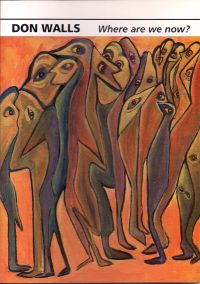
Where are we now?
£7.95 Author: Don Walls
Add to basket -
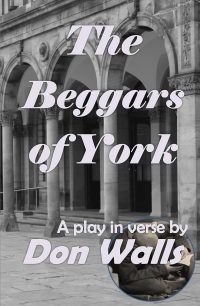
The Beggars of York
£8.00 Author: Don Walls
Add to basket -
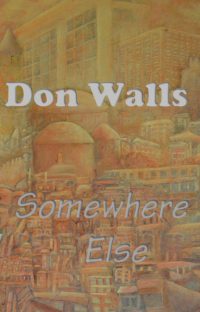
Somewhere Else
£8.00 Author: Don Walls
Add to basket -
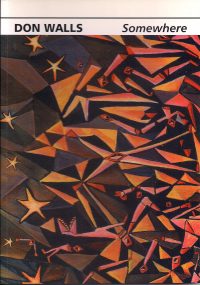
Somewhere
£7.95 Author: Don Walls
Add to basket -
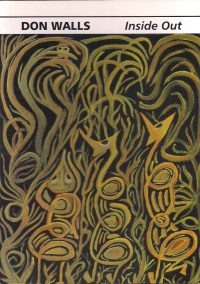
Inside Out
£7.95 Author: Don Walls
Add to basket -
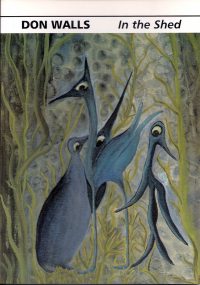
In the Shed
£6.95 Author: Don Walls
Add to basket -
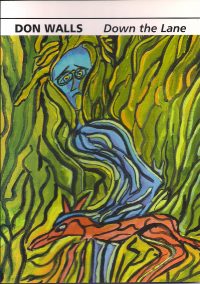
Down the Lane
£7.95 Author: Don Walls
Add to basket -

A Thing of Beauty is a Joy Forever
£8.00 Author: Don Walls
Add to basket
